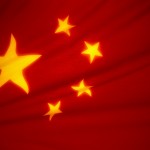
The China Question
One of the best benefits of learning a new language is you begin to understand your own a lot better.
With that in mind, it is worth looking at China for an important window into how a country that some expect will become the world’s largest economy in a few years is wrestling with a political system and a leadership class struggling to stay connected to the nation’s wider population.
For example, lavish personal spending by officials, fueled by a cocktail of bribes and the state’s coffers, is no longer being tolerated. The New York Times found that everything from an official’s choice of wristwatch to the menus at bureaucrat haunts are being toned down at the behest of President Xi Jinping. Austerity has its own flavor in China.
The wielding of power in a functional political system during times of political and economic transition is critical to a nation’s competitiveness. Corruption, self-dealing and factionalism are liabilities that undermine any country seeking a leading role on the global stage. That is true in the private sector just as it is in government. When both realms are riddled with such flaws a country’s leaders are effectively selling their future to buy advantages today. Just as America wants to improve its own competitive position, other nations such as China are doing the same.
Xi’s recent arrival in the country’s top post comes at a pivotal moment. Its economic rise may become choppier but the sheer momentum of the Chinese economy, and a shift from exports toward domestic consumers for growth, potentially means big shifts in the global pecking order right around the time of the next U.S. presidential election. The Organization for Economic Cooperation and Development expects China to become the world’s biggest economy in 2016, according to its latest China survey released earlier this month.
This internal focus on yanking the reins of top Chinese officials comes at a time of expansion abroad. In a sense, Xi is putting modern China’s house in order as the country prepares to extend itself into the Pacific farther than it has before. The latest, according to Voice of America, involves sending a small number of Chinese naval vessels into the South China Sea, near Malaysia.
Such adventures have meaning regionally for China, but also for the U.S. given its “pivot” from the Middle East and Central Asia to the Pacific. How the U.S. and China manage their own political systems, and the attendant liabilities that go with them, will play a major role in how each nation executes its strategy in the Pacific. That is something both countries already understand.
Check out our other blogs on the subject here.






[…] Read more at the American Security Project’s Flashpoint blog. […]
[…] The China Question […]
[…] The China Question […]